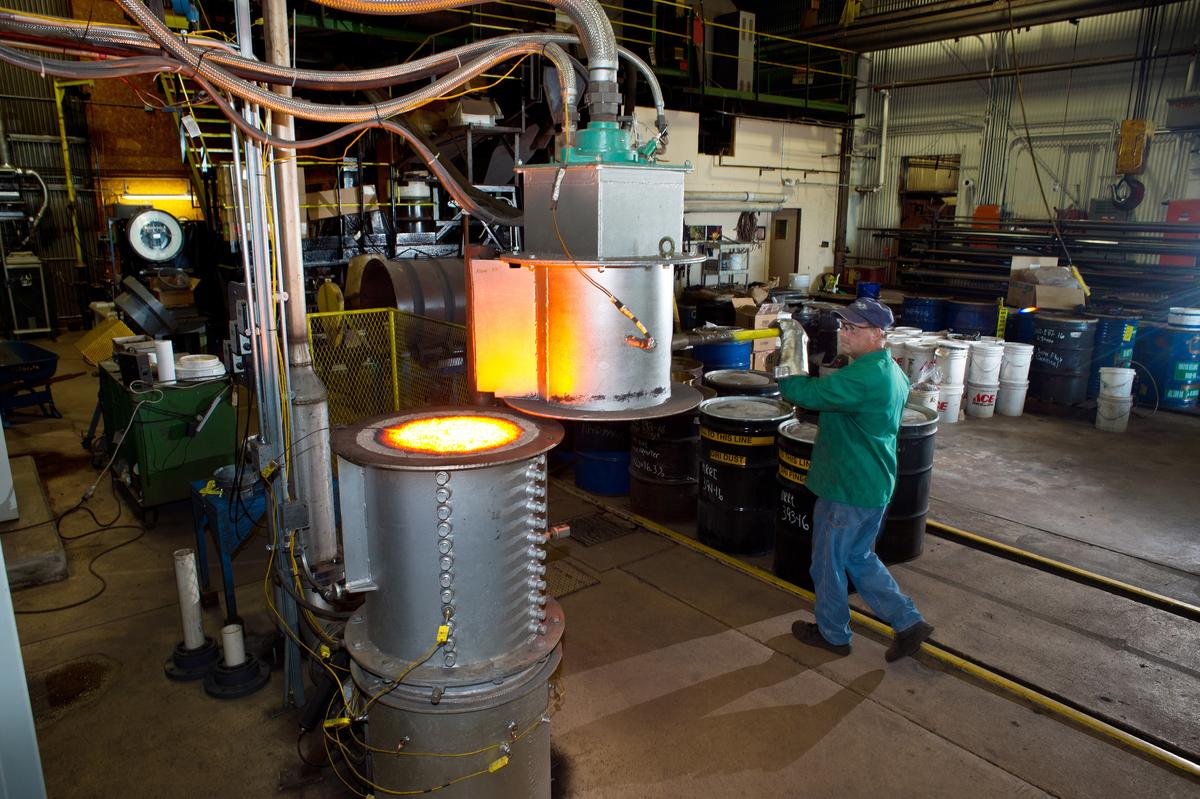Duluth, Minn. – The University of Minnesota Natural Resources Research Institute (NRRI) in Duluth received a $2.9 million grant from the U.S. Department of Energy (DOE) matched with $1.6 million in NRRI internal funding to develop a bio-based carbon product to replace fossil fuel in electric arc furnace steelmaking. The project kicks off in February.
The research employs a patent-pending densification technology that can transform engineered biocarbon (often called biochar) into a product that can be used to replace fossil coal in the electric arc furnace (EAF) for steelmaking. EAF steel production is a more efficient and lower carbon emission process than traditional blast furnace steelmaking.
According to the World Steel Association, every ton of steel produced contributes 1.9 tons of carbon dioxide into the atmosphere. Even so, the American Iron and Steel Institute (AISI) says the U.S. steelmaking industry, predominantly using the EAF technology, is the cleanest and most energy efficient of the leading steel industries in the world. However, industry leaders are aiming to reduce or eliminate fossil fuels in the production process for an ultimate goal called “green steel.”
“At NRRI we are able to replicate some of the chemical, physical and metallurgical properties of fossil fuels using locally sourced woody biomass waste materials,” said Matt Mlinar, research group leader and co-principal investigator on the DOE project.
The DOE grant also includes funds to implement a unique, new internship program that will make the project’s STEM research activities available to rural northern Minnesota college students.
Non-Fossil Fuels 101
Fossil coal is made up of plants and other organic matter buried deep within the earth, subjected to intense heat and pressure over millions of years, becoming a concentrated carbon source. Engineered biocarbon is made by heating biomass in a low oxygen kiln. It is then pressed into briquettes or pellets to achieve properties that allow for direct substitution of the fossil coal used at the electric arc furnace.
Production of biocarbon-based pellets is carbon neutral, processing woody biomass resources and waste streams while capturing the off-gasses and recirculating it back into the system as an energy source. It also uses steel industry byproducts and other industry waste streams.
“Our goal will be to tweak the formulation and, by 2026, demonstrate this process at a tonnage scale in an actual steel mill,” explained Brett Spigarelli, the project’s principal investigator.
Introducing the Team

Brett Spigarelli, Principal Investigator and Senior Research Scientist: Spigarelli will be overall lead on the project and responsible for keeping it within scope.

Matt Mlinar, Co-PI and Minerals and Metallurgy Research Group Leader: Mlinar will be leading the management of the project. He will assist with keeping the project on budget and schedule.

Eric Singsaas, Co-PI and Materials and Bioeconomy Research Group Leader: Singsaas will lead the Materials and Bioeconomy team while serving as the subject matter expert on biocarbon.

Brian Barry, Chemistry and Materials Science Program Leader: Barry’s role is to employ advanced biocarbon characterization techniques to better understand the fundamental characteristics of the biocarbon.

Matt Young, Biomass Conversion Specialist & Engineer: Young will lead the engineered biocarbon optimization and production efforts.

Rod Johnson, Metallurgist and Endowed Taconite Chair: Johnson will lead the mineral and byproduct characterization efforts.

Tiffany Sprague, Diversity/Equity/Inclusion Leader: Sprague will be leading a first-of-its-kind diversity, equity, and inclusion action plan. She will implement a new internship program aimed at diversification of STEM activities related to this project.
Collaborators from outside of NRRI include techno-economic analysis expert Malek Alkasrawi, life cycle analysis expert Tait Bowers from Long Trail Sustainability, and diversity, equity, and inclusion expert Amy Myrbo from Amiable Consulting.
The mission of NRRI is to deliver integrated research solutions that value our resources, environment and economy for a sustainable and resilient future.
